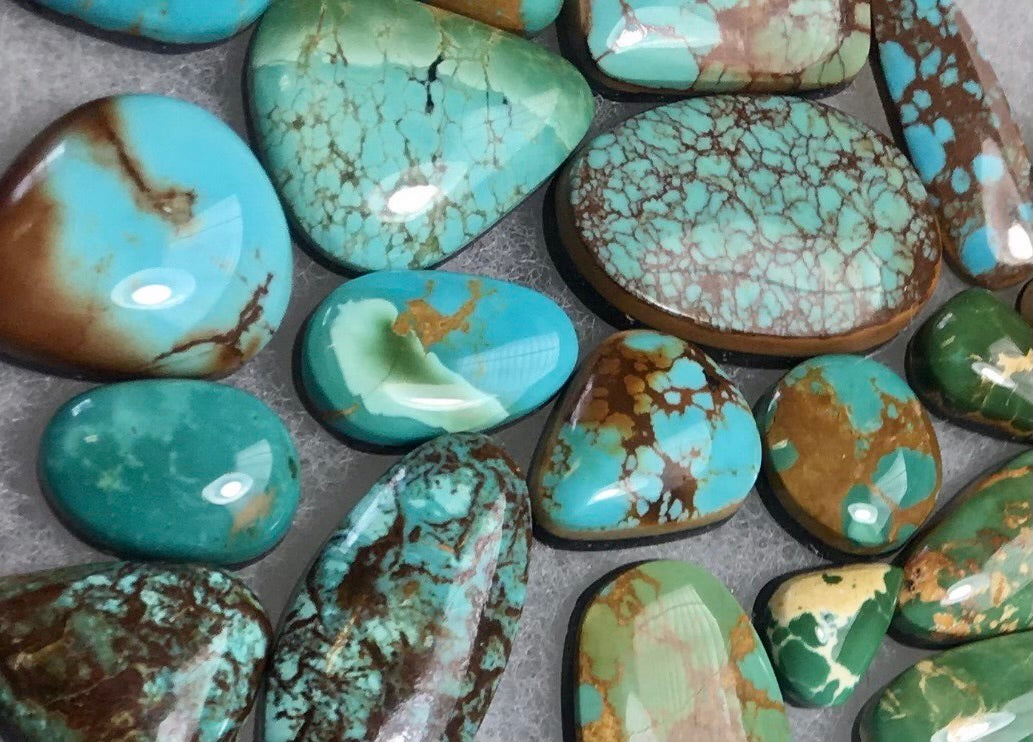Welcome, fellow adventurers, to a journey into the heart of one of nature's most mesmerizing mysteries: the enchanting hue of turquoise. Buckle up as we embark on a scientific exploration into the depths of this captivating gemstone's coloration, a tale of chemistry, geology, and wonder!
Picture this: you're strolling through a bustling marketplace, and your eyes are drawn to a display of exquisite turquoise jewelry. Its vibrant blue-green hue seems to whisper secrets of distant lands and ancient civilizations. But have you ever paused to ponder how this stunning gem acquires its distinctive color? Fear not, intrepid traveler, for we are about to uncover the truth!
First things first, let's dive into the chemistry behind turquoise's captivating coloration. At its core, turquoise is a phosphate mineral, primarily composed of copper and aluminum. Ah, copper, the unsung hero of the periodic table, known for its ability to imbue substances with hues ranging from fiery reds to verdant greens.
But wait, there's more to this tale than meets the eye! You see, turquoise owes its unique shade not only to the presence of copper but also to a fascinating phenomenon known as "charge transfer." Picture tiny electrons dancing within the crystal lattice of the turquoise, leaping from one atom to another like cosmic acrobats. This intricate ballet of charged particles results in the absorption and reflection of specific wavelengths of light, ultimately giving turquoise its signature blue-green glow.
Now, let's journey deeper into the bowels of the Earth, where turquoise's epic saga truly begins. Our gemstone protagonist forms within the cracks and crevices of ancient rock formations, where mineral-rich waters percolate and mingle over millennia. Here, in the belly of the Earth, copper-rich solutions intermingle with aluminum and phosphate ions, laying the foundation for the birth of turquoise.
But hold onto your hats, adventurers, for the journey is fraught with peril! As the turquoise crystalizes and matures, it encounters a myriad of impurities lurking within the Earth's crust. Iron, manganese, and even organic matter can infiltrate its crystalline structure, casting shadows and nuances upon its azure canvas.
But fear not, for these imperfections only serve to enhance turquoise's allure, lending each gemstone a unique personality and story to tell. From the rugged mines of the American Southwest to the sun-kissed deserts of Persia, turquoise emerges as a testament to the Earth's boundless creativity and resilience.
So, the next time you gaze upon a piece of turquoise jewelry or marvel at the beauty of a turquoise-hued landscape, remember the epic journey that brought this captivating gemstone into the world. From the depths of the Earth to the shimmering surface of human adornment, turquoise's tale is one of science, magic, and eternal fascination.
As our expedition draws to a close, let us cherish the mysteries of the natural world and celebrate the vibrant hues that adorn our lives. For in the heart of every turquoise gemstone lies a story waiting to be discovered, a testament to the wondrous complexities of our universe. Until next time, fellow adventurers, may your journeys be as colorful and captivating as the turquoise itself!
